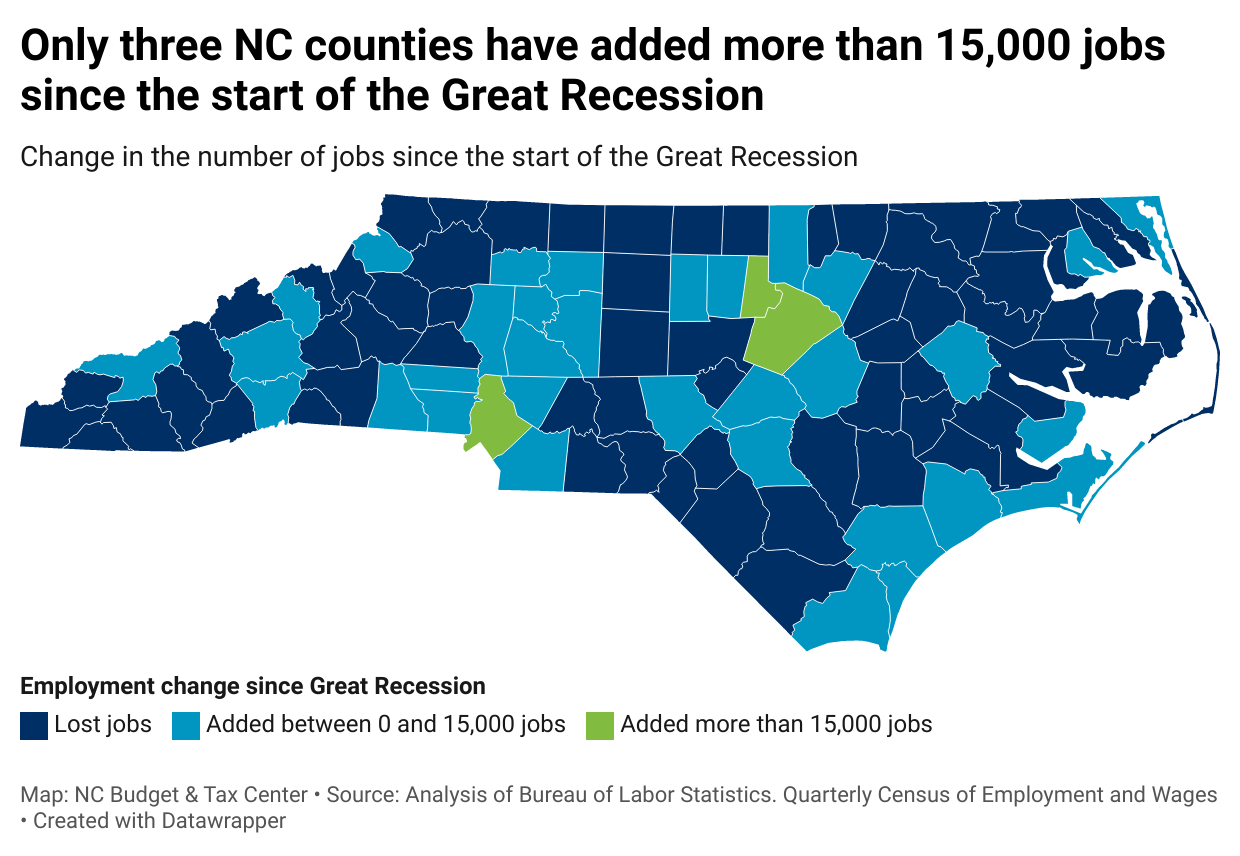
Tax cuts left many small towns, rural communities, and smaller cities out in the cold
In 2013, the NC legislature started cutting taxes (mostly for big corporations and wealthy people). Most years since have NC lawmakers continue to divert public funds from things like schools, childcare, broadband, water quality, and public safety, to the pockets of out-of-state corporations and the wealthy few. These cuts also put more of the burden on middle- and low-income taxpayers while letting their richer neighbors off the hook. This post is part of a series bringing light to how tax cuts have failed to deliver promised benefits while undermining our ability to pay for things North Carolinians need.
Recent tax cuts have failed to stop the erosion of economic opportunities outside of North Carolina’s biggest cities.
Almost two-thirds of North Carolina’s counties have fewer jobs today than existed before the Great Recession, and almost a third have lost jobs since NC lawmakers first started implementing tax cuts in 2013.
The concentration of economic opportunity in just a few cities is even more striking when you look at where the new jobs are being created. Mecklenburg, Wake, and Durham counties account for 97 percent of the total state employment growth since the start of the Great Recession. Those three counties together have added nearly 340,000 jobs since the beginning of 2008, while no other county in the state has added more than 15,000.
Imagine what North Carolina could have done instead with the funds that were diverted to the pockets of the richest few and wealthy corporations. Imagine a state where we had instead hired more bus drivers to get our kids to school (and us to work) on time, made sure every child got the educational support they need (and have the constitutional right to), made sure broadband reaches every corner of the state, or funded training for people to keep up with a changing job market -- the many other things that would help everyone in North Carolina thrive.



